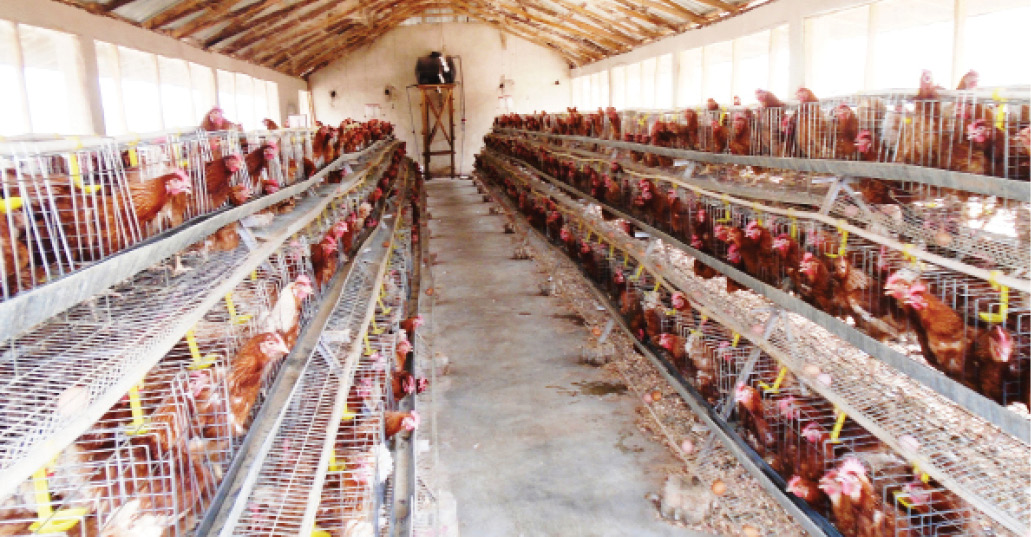COVID-19: How poultry industry lost about N1.5trn
One of the hardest hit industries in Nigeria due to the COVID-19 lockdowns and restrictions is the poultry industry. Many farms were devastated as millions of eggs unsold and chicks were left to die, while those beginning to lay eggs were sold cheaply. CBN’s timely university-based poultry revival programme Katsina poultry farmers lose N216m to […]

One of the hardest hit industries in Nigeria due to the COVID-19 lockdowns and restrictions is the poultry industry.
Many farms were devastated as millions of eggs unsold and chicks were left to die, while those beginning to lay eggs were sold cheaply.
CBN’s timely university-based poultry revival programme
Katsina poultry farmers lose N216m to theft, banditry
Many medium-scale and smallholder farmers were forced to either slaughter their chickens and sell in pieces or give away cheaply on credit.
In addition to the pandemic, maize scarcity pressured the prices of feeds hit the roof, which became the last straw that breaks the camel’s back dragging the industry to a near collapse.
A few days ago, the Poultry Association of Nigeria (PAN) estimated that the poultry industry lost about N1.5 trillion due to the effects of the COVID-19 pandemic.
President of the association, Mr Ibrahim Ezekiel Mam, in a Press Conference in Abuja to appreciate President Muhammadu Buhari for his intervention by given the association 5,000 metric tonnes of maize from the country’s strategic grains reserves, said if not for the President’s intervention, a lot more damage could have been done.
“On the impact of COVID-19, I have said it severally that factories were forced to bury their day-old chicks because they could not sell out; eggs were buried because they were not picked up from the farms due to lockdown, which is unfortunate.
“Even the chicks that managed to come out of the factories, they died because of suffocation and farms forced to sell off birds due to the cost of feed.
“Then the feed millers, even to get the raw materials became a big problem. So conservatively, what we can quantify in terms of lost, is about N1.5 trillion for the poultry industry,” he said.
How Buhari intervened
Following a Save Our Soul letter to the president over severe maize scarcity and shortage, the president gave approval to some stakeholders including big commercial farmers to import over 220 metric tonnes of maize to augment the shortfall.
In addition, the farmers were given 5,000 metric tonnes of maize from the strategic reserve as palliative to the Poultry Association of Nigeria at a subsidised rate of N90,000 per metric tonne.
“We thank Mr President, Muhammadu Buhari for his quick response to the ‘Save Our Soul’ letter to assist the poultry industry from going down into extinction to which he graciously approved 5,000 tonnes of maize to the association,” Mr Mam said.
Speaking further on the grains palliative, the Director-General of the association, Dr Anallo Akpa, said the 5,000 tonnes of maize received from the federal government was distributed to smallholder farmers across the 36 states and the FCT, who are registered with the association, adding that big commercial farmers were exempted.
Dr Akpa, who presented the list of the beneficiaries, said the association believes it would go a long way to cushioning the effect of the hardships that confronted many small-scale farmers.
What farmers want FG to do
The farmers, through the association, called on the federal government to enshrine cohesive policy to encourage private sector investments in agriculture by pegging interest rates on borrowing to agriculture to a maximum of 3 per cent.
In addition, the farmers appealed to the federal government to maintain the total ban on the importation of the frozen chickens and products and also “ensuring that maximum sanction and prosecution are meted to violators in order to deter others.”
They appealed to the government to allow free duty charge on the importation of poultry equipment and machines against the current practice of putting all agricultural equipment on 5% import duty against the zero duty for all agricultural equipment.
